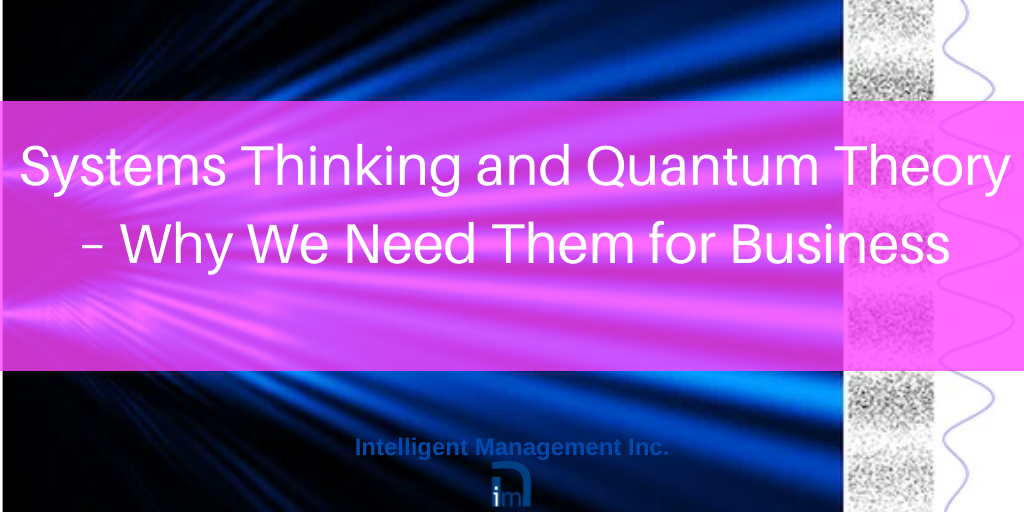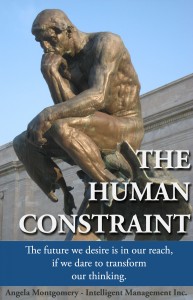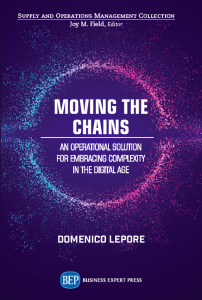
Readers of this blog will know that we promote a systemic understanding of companies and a systems science-based method for managing all aspects of an enterprise, from strategy through to day-to-day operations. We see organizations as entities that are not a collection of separate pieces but as highly interconnected networks of projects and there is an effective way to manage them as such. This approach encompasses developments in hard science and neuroscience that are ignored in most conventional business practices. What we are experiencing today is the full thrust of a moment of historical transition. We are transitioning from a world where phenomena could be described and managed with the knowledge and information that had been available for hundreds of years, to a new world where complexity dominates. There is a level of interconnection today that means it makes no sense to “cut things up” into pieces and try and manage them like a machine made up of separate parts. On top of that, humans are more evolved and so are their desires and needs.
Unfortunately, the vast majority of companies, and indeed leaders in general, have not yet caught up with what they need to know to operate most effectively in this complex reality. They lack the ability to interpret what is happening and act appropriately. In a world of complexity, phenomena are non-linear. We have to understand them statistically, probabilistically and systemically. We need to be able to understand networks and the systemic nature of problems to develop systemic solutions.
Fortunately, there are increasing signs of awareness for the need for new knowledge to inform the way we perceive reality.
Follow the science of Systems Thinking and Quantum Theory
Just last week alone, there were two strong examples in the mainstream media of the shift that we are living through in terms of how we can understand the world around us better and what the implications of that can be.
Stephen Richardson, President of the Institution of Chemical Engineers (IChemE), recommended to a House of Lords select committee held virtually on 10 March that systems thinking skills should be mandatory in engineering education for effective risk management.
The oil and gas expert and Emeritus Professor of Chemical Engineering at Imperial College London was joined by nuclear expert Dame Sue Ion – an Honorary Fellow of IChemE and Honorary President at the National Skills Academy for Nuclear. They were invited to give evidence to the Risk Assessment and Risk Planning Committee regarding the resilience and risks within these sectors, as well as the challenges in developing and implementing risk assessment processes.
Their key point was the vital need to embed a systems thinking approach to new or existing system installations throughout their entire lifecycle – from design to decommission. Both emphasized these practices should be embedded from the start, in an engineer’s education and throughout their career via continuing professional development.
“In the session we stressed that to manage risk effectively it is vital to consider the big picture and create a systems perspective from the very start…This means that risk and systems become ingrained into our natural way of thinking.”
See article here.
Quantum perspective
In an interview in a podcast from the Economist Magazine, renowned Italian physicist Carlo Rovelli talks about Quantum Theory and gave an insight about the new paradigm that has been ushered in by Quantum Mechanics. In the same way that Copernicus changed our perception that our world is not the centre of the universe, Quantum Theory changes our perspective towards understanding reality based on interconnections and relations:
The economy is about relations. Psychology is about relations, chemistry is about relations between things, so relational thinking is all over. And to realize that relational thinking works better than thinking in terms of things, I think it’s a major paradigm shift, a change of perspective, that should have an influence on culture in general, I believe. If we think about ourselves as a network of relations with other people and with other things of nature around us, I think we have a more deep and more useful understanding about ourselves than if you think of individual entities that have properties and exist by themselves, and then after that interact with something else. So I think that, realizing the fundamentality of thinking in terms of relations, and understanding objects, animals, psychology, structures, societies as nodes in a network more than an entity by themselves, is the general teaching that can be taken out from this great step in Quantum physics.
Now that we have this understanding, how can we apply Systems Thinking and Quantum Theory to managing companies more effectively? See our next post from one of our two very own Italian physicists, Dr. Giovanni Siepe.
Contact: intelligentmanagement@sechel.ws
SCHEDULE AN INTRODUCTORY CALL WITH US







Your piece elegantly connects the science of systems with the counterintuitive principles of quantum theory to reframe how businesses navigate complexity. It resonates deeply, portraying systems thinking not just as a method but as a leap in how we perceive interconnectedness and possibility.
Thanks for appreciating this post, Dennis.